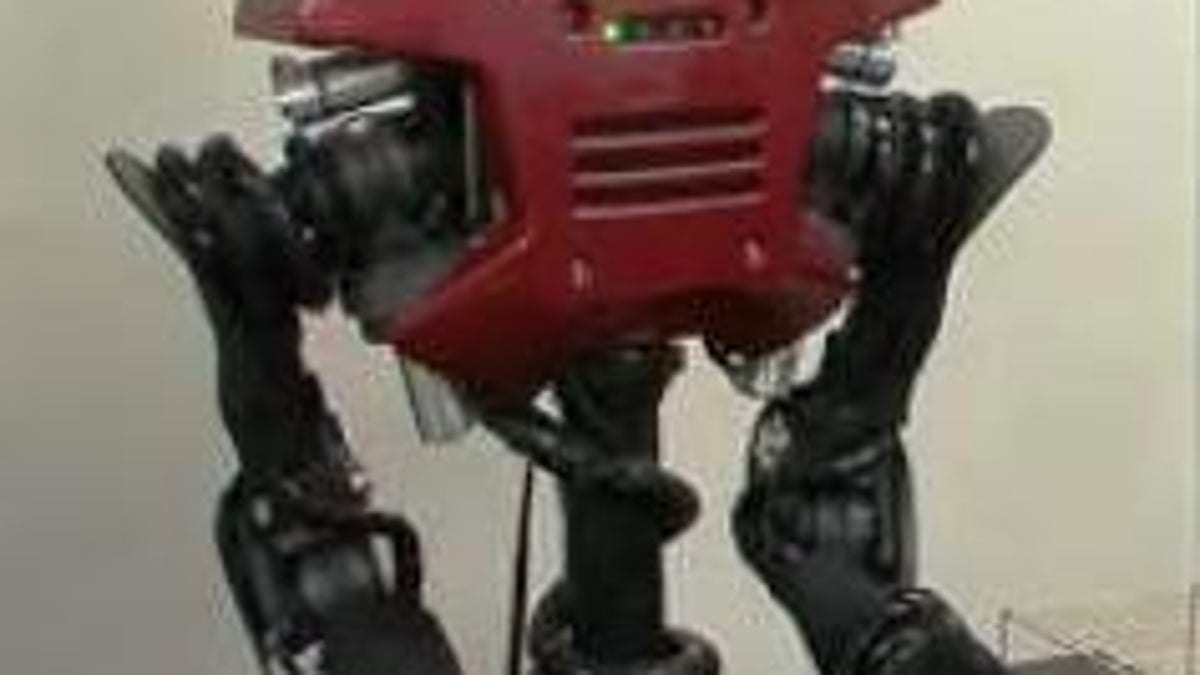Japanese robot pours fake drinks with fake ice
Tokyo Institute of Technology SOINN robot can adapt its previously acquired knowledge to tackle new challenges.

Japanese researchers are developing a robot that can adapt its behavior to new situations and make educated guesses about new challenges based on its knowledge.
Tokyo Institute of Technology's Osamu Hasegawa and collaborators are working on a robot that operates based on an algorithm they've termed a self-organizing incremental neural network (SOINN), which is designed for unsupervised learning tasks.
The humanoid bot has a head, cameras, and two arms. In an experiment, when it's told to serve water, it can identify a cup, grasp it and then pour pellets, acting as the liquid, into the cup.
As seen in the vid below, the experiment isn't exactly mind-blowing. But practical artificial intelligence that works in real-world situations will require robots like this one to be able to figure out what a cup is, and how to pour water.
The SOINN system can filter useful sensory data from background noise, as well as mine the Internet and the experiences of other robots for knowledge. Hasegawa gave the example of an elder-care robot in Japan querying another in England on how to make tea.
The idea of globally networked robots querying each other for how-to tips could gain traction with the advent of Willow Garage's open-source ROS operating system, which is powering bots around the world.
Let's just hope they don't get any dangerous ideas.

